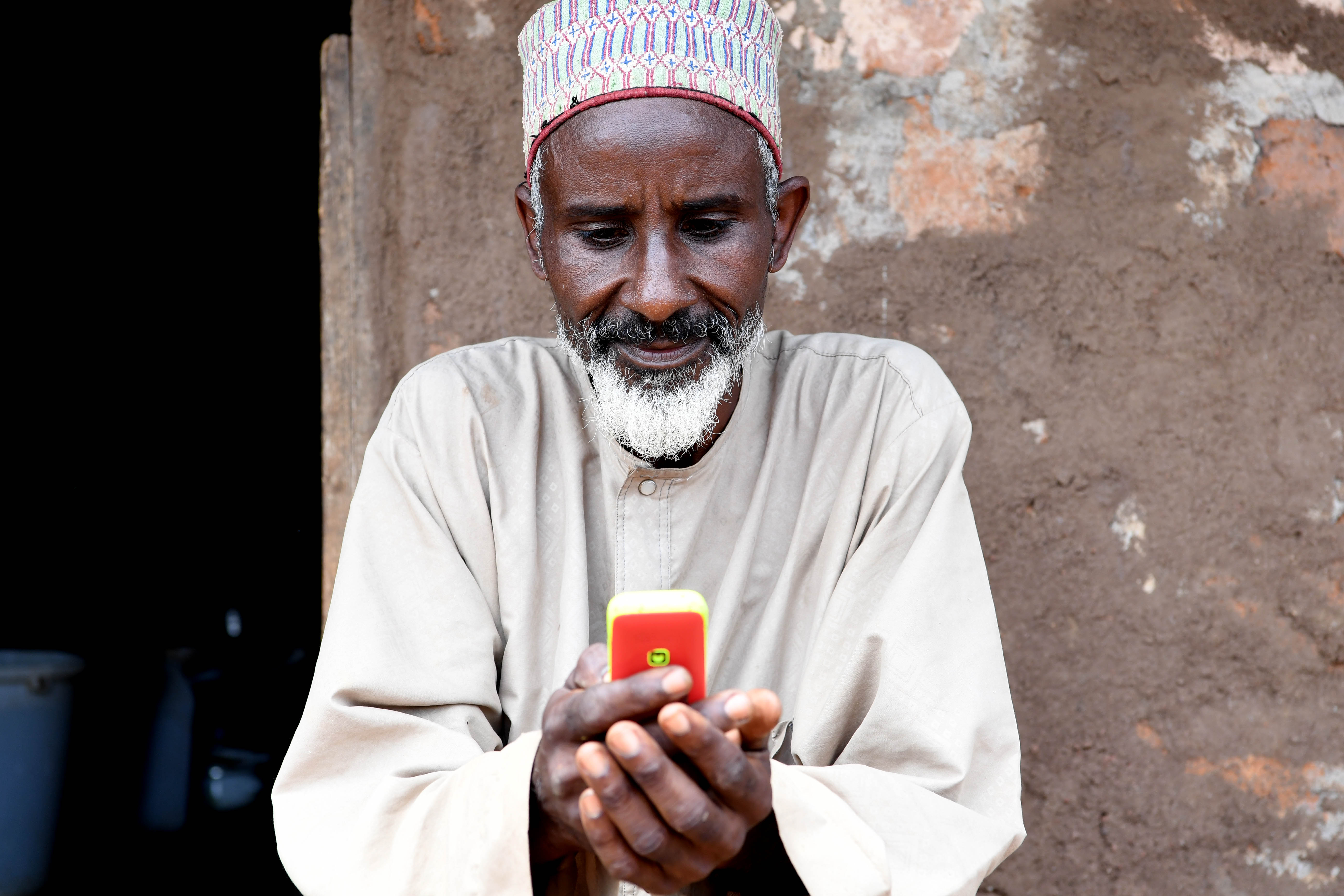In Cameroon, cash assistance gives more than a lifeline for Central African refugees
In Cameroon, cash assistance gives more than a lifeline for Central African refugees

Kette, Cameroon – The town of Kette is situated along the border of Cameroon with the Central African Republic. Home to more than 3,200* Central African refugees, Kette has a unique district, commonly referred to as “Bozizé’s neighbourhood”. The families who live here are the longest standing residents in the area. Having arrived in Cameroon in 2004, when François Bozizé came to power in CAR, these families now live alongside their brothers and sisters who came ten years later, when their country was once again plunged into conflict following the ousting of the President.
It is in this neighbourhood that the most vulnerable live, especially the elderly, like Ibrahim. At sixty years old, he is worn down by a life of hardship and displacement, 14 years of which have been spent here, taking care of his seven children. In his little terracotta hut, his daughter is lying beside little Ibrahima, born barely a week ago. She is the first born of the third generation of refugees to live here.
His neighbour, Youssoufa, hails from the same town, Baoro. Born in 1952, he is today a father and grandfather. His age and health no longer allow him to work in the fields, as he did before to support himself. Sitting cross-legged in the shade of his hut, with a curved back, his head is bent towards a small cell phone, barely reading the numbers on the screen. He is, little by little, he is losing his sight to cataracts.
A mobile phone, given to him a month ago by UNHCR, the UN Refugee Agency, may seem insignificant, but in reality, it marks a major change to his daily life. It is not so much used to place calls but to receive a small sum of money which UNHCR pays into his mobile account at the end of every month: “I received a first payment of 10,000 FCFA (15 Euro) with which I could buy rice and receive medical treatment,” he says. Like his neighbor, he has also deposited 1,000 FCFA into a common savings bank.
With hands-on training offered by UNHCR’s partners on how to use the device, Ibrahim used his first payment to cover medical costs for his newborn grandchild. With his phone, he was able to convert the virtual currency into cash through an authorized agent not far from his home.
In addition to this monthly sum, the 407 families already benefiting from the new “social safety nets” project recently launched in Kette, will also receive 60,000 FCFA at the end of the year to help them with income-generating activities. This will, in the long run, move them towards more economic independence.
“When we eventually receive larger sums of money, I can start a small business,” Ibrahim explains, while his neighbour hopes to be able to afford some goats.
For Didjatou, a 46 years old widow, the allowance means she can pay her children’s school fees. Maimouna, also a widow and mother of six, is already investing in a cassava farm and a henhouse which would save her from going to fetch wood to sell in the market. This is a tedious and dangerous job for this widow who, in addition to her children, supports two young orphans as well as an older person.
In this region of Cameroon, along the border with the Central African Republic, the stories of these vulnerable refugees are similar. Worn down by life and broken by war, many offer a helping hand to others, especially orphans with no one else to care for them.
Not far from here, in the Timangolo refugee camp, a man is working on a large wooden structure. It is the frame of a durable shelter which will be built with earth bricks and a thatched roof, a common feature in the area. “This house is not for me” says Gambo. “It’s for my three adopted children, Ismaël, Moussa and Mairamou, whose mother died in the Central African Republic.”
Gathered around their adoptive father, the children watch as their future home is being built, just next door to that of their adoptive father. Gambo received 40 000 FCFA via the same mobile wallet system, to buy the materials needed for the build.
According to UNHCR, this financial assistance offers many advantages: families can buy what they need, be it food, medicine, clothes, toothpaste, cooking utensils, school books or even seeds and farm supplies.
In addition to empowering families in choosing what they need, this approach allows households to plan for the future, while UNHCR assist them in investing in income-generating activities, such as farming or livestock breeding, until they become financially self-sufficient.
Provisional social safety nets are modeled on the Cameroon government’s assistance to its citizens in need, which means that all the selected refugees receive the same amount of support as those in host communities.
However, the lack of funding has limited support and not all refugees in need have been reached. In 2019, UNHCR will need USD 6.8million to provide support to 6,500 households. This is not taking into account the 200,000 Central African refugees considered vulnerable, and as well as new arrivals to Cameroon. UNHCR estimates that at least 80,000 people are still not receiving the necessary assistance to cover their basic needs.
* as of 30 September 2018
Translated by Melvis Kimbi Lu; edited by Saorlaith Ni broin & Romain Desclous













